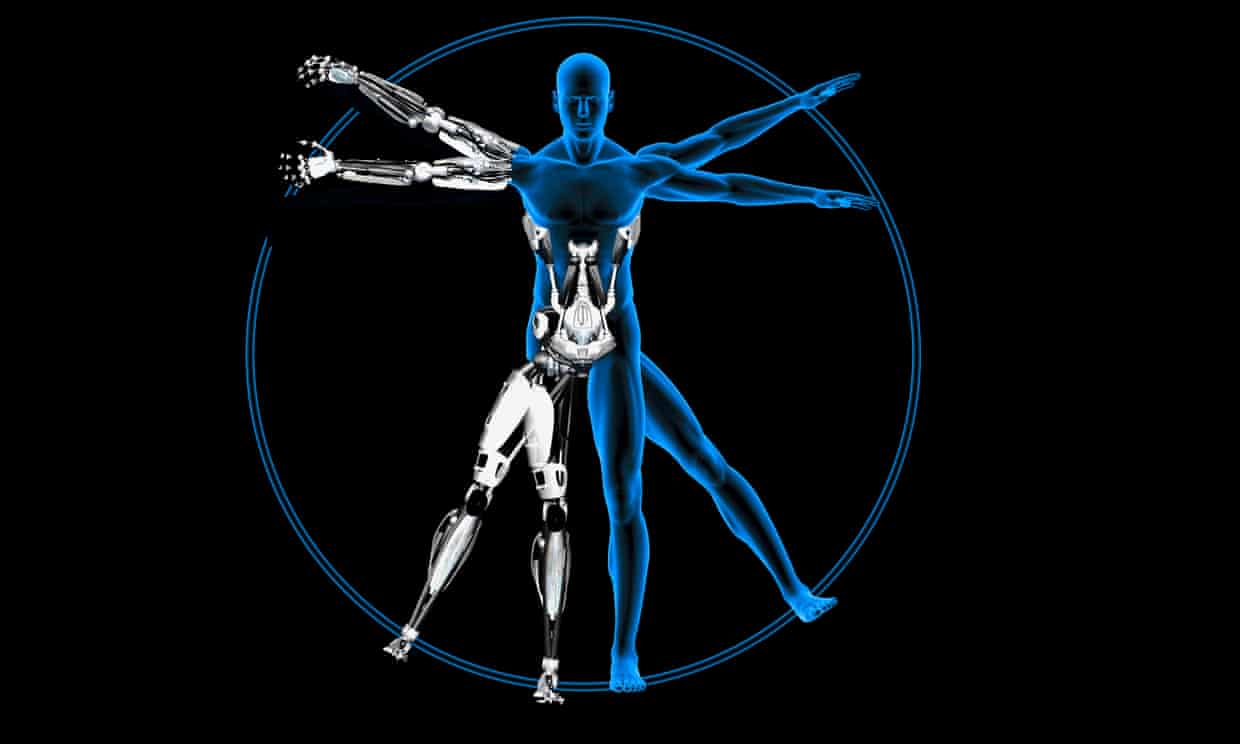by JULIAN GOUGH
 Digitised, militarised, technological times. COMPOSITE/Lynsey Irvine/Getty
Digitised, militarised, technological times. COMPOSITE/Lynsey Irvine/Getty
From Philip K Dick’s obtuse robots to Mark O’Connell’s guide to transhumanism, novelist Julian Gough picks essential reading for a helter skelter world
I’m an Irish writer whose new novel is set in the digital, hi-tech future. Which makes it … unusual. If traditional Irish literature was a car, it would have a wide selection of reverse gears, 30 or 40 rear-view mirrors and no headlights. I admire much of Ireland’s brilliant, backward-looking, past-obsessed canon. But other literary traditions use the future: Brave New World, Nineteen Eighty-Four, The Sirens of Titan, A Clockwork Orange, Oryx and Crake, Accelerando, The Power … Irish literature has only recently begun to do this, in books such as Mike McCormack’s Notes from a Coma, Kevin Barry’s City of Bohane, and Sarah Davis-Goff’s forthcoming Last Ones Left Alive. Maybe Ireland needed to escape its own stifling past first, referendum by painful referendum.
And so, in 2012, possessed perhaps by the zeitgeist, I began writing Connect. In it, biologist Naomi Chiang, disturbed by the implications of her research, refuses to publish. Her home-schooled, troubled son, Colt, hides from the world inside a virtual reality headset. But Colt secretly sends his mother’s work out into the world; the military, and Colt’s father, come hunting them; and Naomi and Colt must finally engage with their digitised, militarised, technological times.
Connect is essentially a novel of ideas, hidden inside a family drama, and disguised as a techno-thriller. To write it, over what turned out to be seven years of accelerating global change, I needed to understand where the modern technological world came from and where it might be headed. James Joyce, bless him, wasn’t going to help me there.
Here are 10 of the books that did help me: they might also help you understand, and survive, our complicated, stressful, digital age.
1. Marshall McLuhan Unbound by Marshall McLuhan (2005)
The visionary Canadian media analyst predicted the internet, and coined the phrase the Global Village, in the early 1960s. His dense, complex, intriguing books explore how changes in technology change us. This book presents his most important essays as 20 slim pamphlets in a handsome, profoundly physical, defiantly non-digital slipcase.
2. Ubik by Philip K Dick (1969)
Pure pulp SF pleasure; a deep book disguised as a dumb one. Dick shows us, not a dystopia, but a believably shabby, amusingly human future. The everyman hero, Joe Chip, wakes up and argues with his robot toaster, which refuses to toast until he sticks a coin in the slot. Joe can’t do this, because he’s broke. He then has a stand-up row with his robot front door, which won’t open, because he owes it money too … Technology changes: being human, and broke, doesn’t.
Warning: Dick wrote Ubik at speed, on speed. But embedded in the pulpy prose are diamonds of imagery that will stay with you for ever.
The Guardian for more
